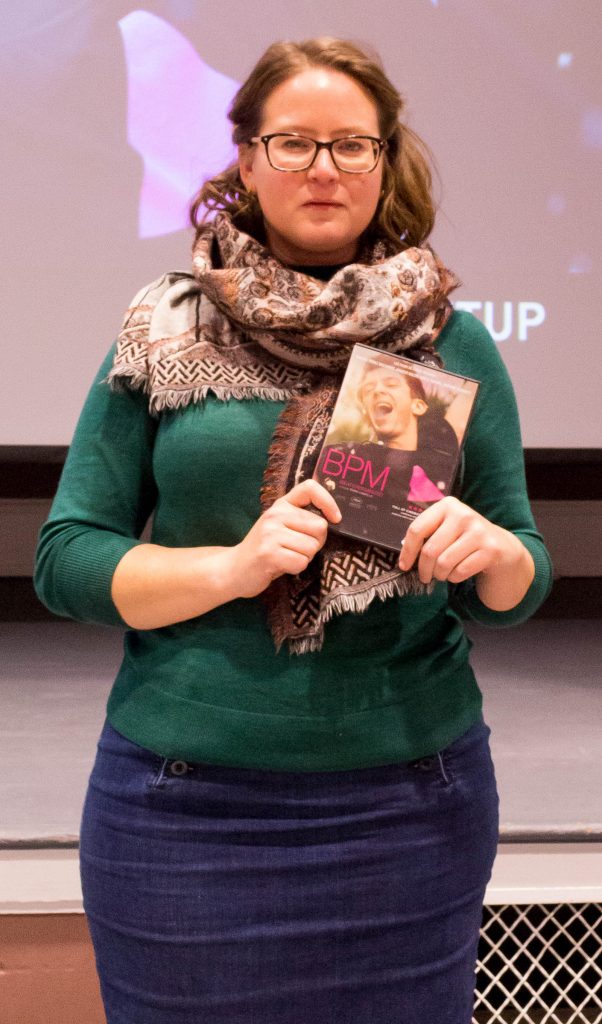
Jamari Gilbert | Freelancer
“Beats Per Minute” or “BPM” is a movie directed by Robin Campillo. This dramatized historical piece was showcased here at Western during the Tournées Film Festival. The TFF brings French films here to Western and other American campuses. “(The movies) touch on a wide range of subjects, diverse perspectives, locations, and human experiences, all circling around themes of mobility, migration and global interconnections,” says the film festival page on Western’s website. There will be six movies in total every Thursday, from Oct. 11 through Nov. 15.
“BPM” delves into activities of the HIV/AIDS activist group, Act Up-Paris in the 1990s. They are faced with many challenges in the film: the majority believing that AIDS only affects homosexuals and the government not passing laws to help stop the outbreak. Their activism varies from throwing fake blood over pharmacies to throwing the ashes of departed members onto conference members and their food.
The audience is first introduced to the Act Up-Paris branch for the first half of the movie. This section of the movie is more of a celebration of the hard work that the many men and women of the Act Up-Paris performed to ensure a brighter future for those individuals living with AIDS. As the Act Up-Paris group is trying to decide the best means of getting their message across, infighting occurs, with some members even going so far as to openly sabotage other members work when they are unhappy. Bits of drama like this are sprinkled throughout the movie even though the premise alone is serious enough.
The last half of “BPM” focuses on how AIDS will destroy an individual once infected. Several characters portray the grim outcome, but the most prominent is the character Sean, a veteran of the Act Up Paris group who is already in the later stages of the disease. He forms a sexual relationship with one of the newest members Nathan. This half of the movie goes into their relationship and shows how AIDS will both affect the infected and those around them.
“BPM” is long, but it is worth it. Showing the fight against AIDS in two different ways: the political fight that demonstrates the hardships everyone involved must face and how AIDS changes the lives of men and women who are infected by the disease.
Overall Rating: I would recommend this movie if the viewer is interested in learning about the AIDS movement in countries besides the United States, or if they’re interested in an LGBTQ+ film.
Contact the author at jgilbert16@mail.wou.edu
Photo courtesy of Ashlynn Norton

